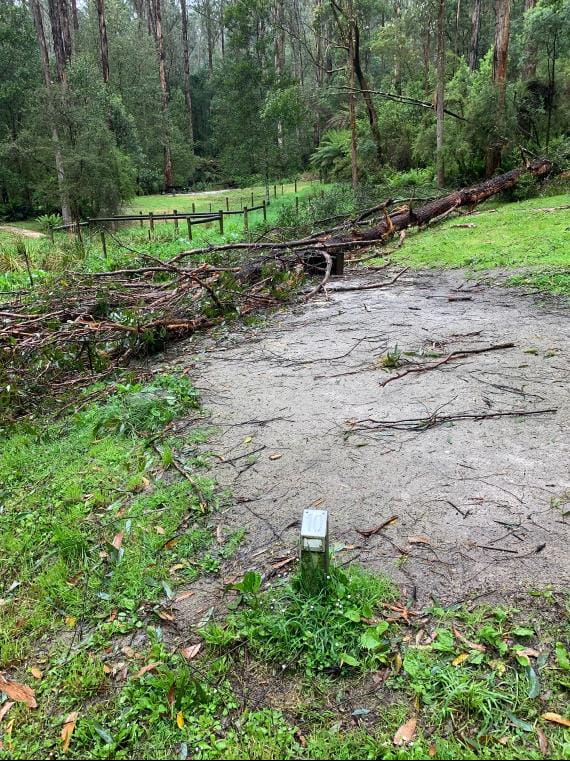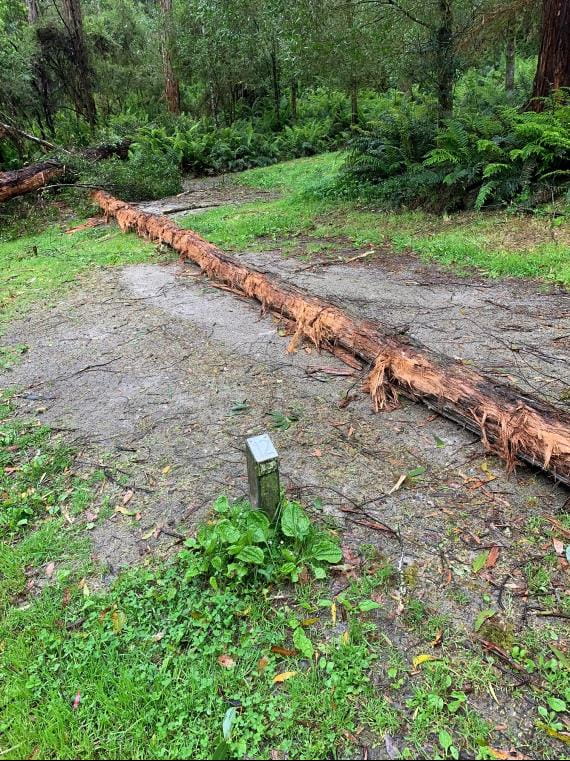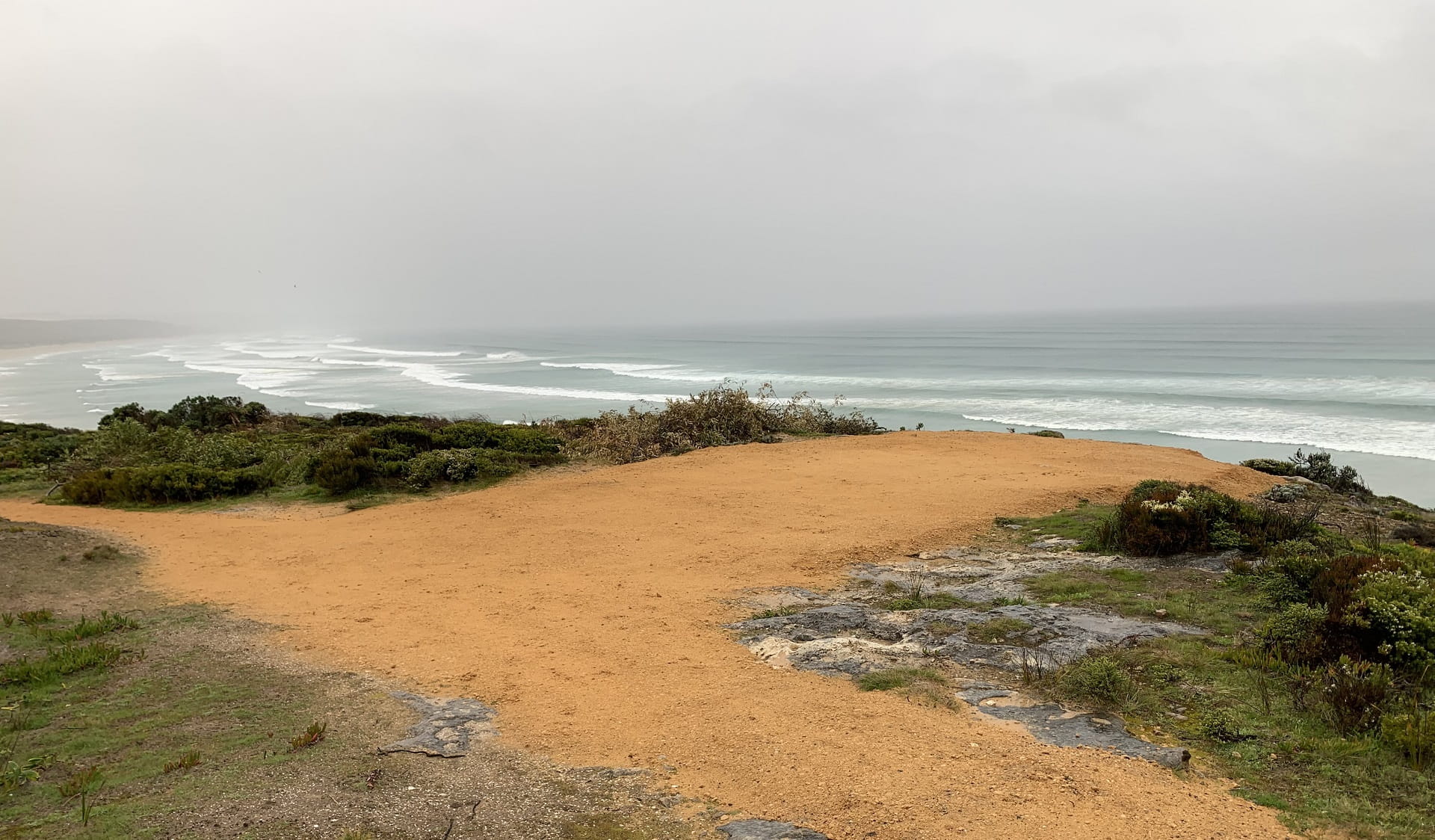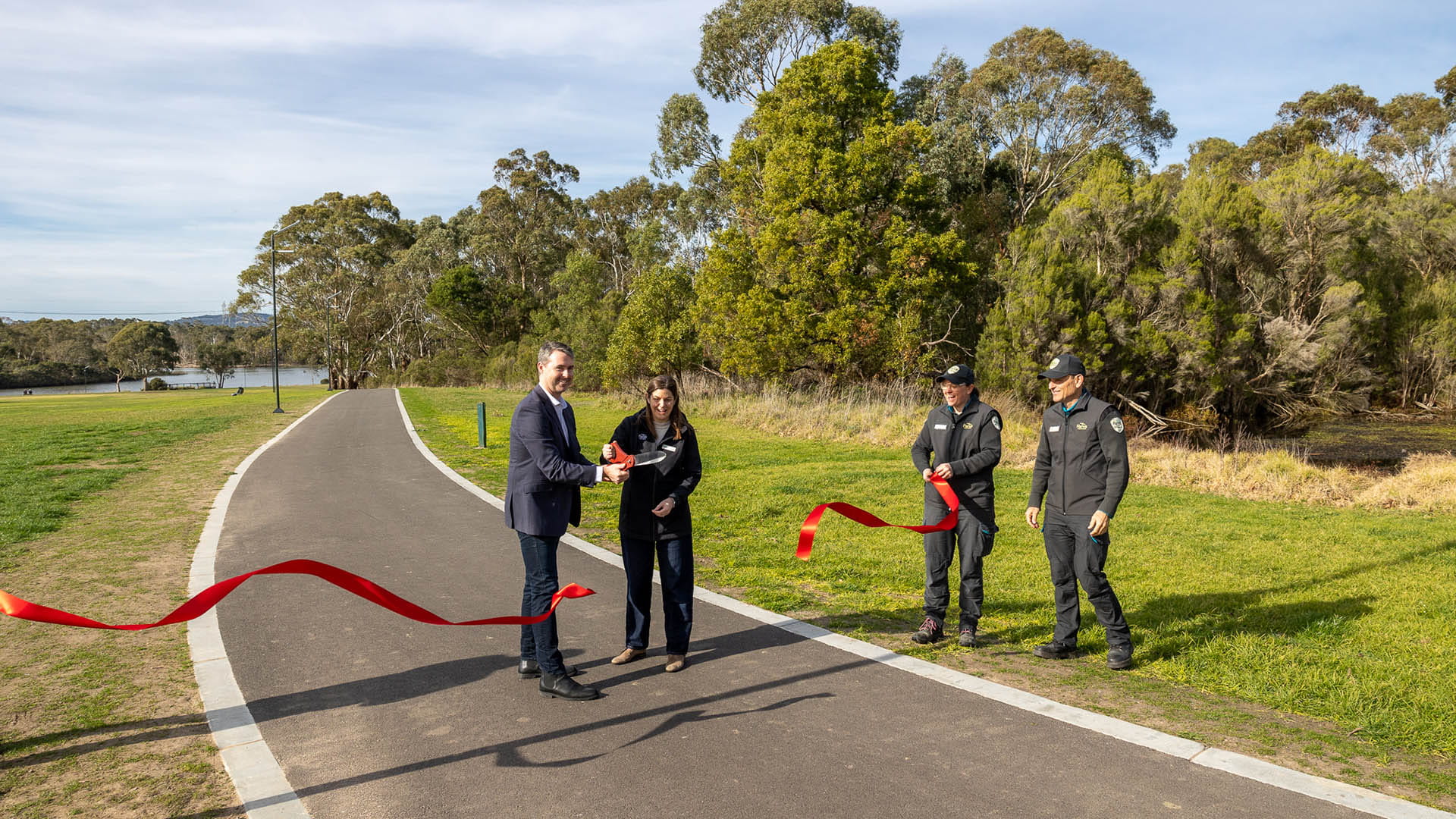Be aware of tree risks
Tuesday 20 December, 2022
This summer, visiting nature will be different. Victoria’s recent flood and storm events have saturated the ground, loosened the soil and weakened the stability of trees.
“We are seeing an increased number of branches, and even entire trees suddenly falling to the ground,” explains Area Chief Ranger Andrew McKinnon.
Area Chief Ranger Andrew recently saw firsthand the risk of fallen trees at Great Otway National Park on Eastern Maar Country. “When I arrived at Lake Elizabeth campground in the morning, I was shocked. What were healthy trees the day before, had crashed without warning, directly onto empty campsites overnight,” Andrew recalls.
“The weight of a full healthy tree toppling over must have made a huge thump on the ground. I thought to myself, thank goodness no one was camping here at the time.”


Even healthy trees, like these photographed by Area Chief Ranger Andrew, are at risk of uprooting and falling unpredictably due to sodden ground and winds.
Safety is Parks Victoria’s priority, and staff are continuously assessing this risk in parks and reserves. However, due to Victoria’s long, wet spring, falling trees can be unpredictable.
For visitors who are visiting nature this summer, please be vigilant of tree risks. Some of the key characteristics we use, that you can too, include:
- Dead and/or decaying tree, or major branches
- Signs of cracks or splits up and down the trunk
- Signs of the ground lifting or moving at the base of the tree or roots
- Tree is leaning heavily to one side, possibly in combination with the above characteristics
Remember:
- Even parks which haven’t experienced flooding events can have trees and branches fall at any time.
- Where possible, always camp under clear skies and avoid parking or sitting under trees. If you plan to camp near trees, look up at trees for any signs of leaning and hanging or broken branches and at the base of the tree for any signs of soil movement that may indicate a lack of stability in the tree. If you see these signs, do not camp near the trees.
- When walking or hiking, be aware that fallen trees may block tracks and roads, including return routes.
Before you get into nature, make sure to check the Flood and Storm Affected Parks page and follow all warning signs and barriers in parks.
For more safety advice, visit Stay safe in nature this summer.




